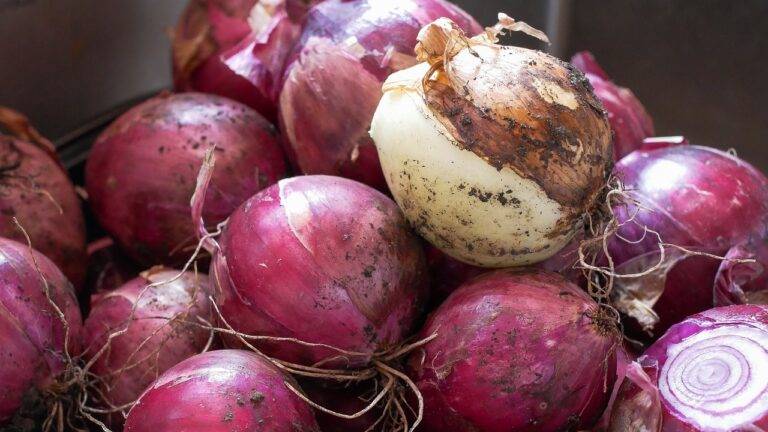The Impact of Food Redistribution Initiatives on Food Security Programs: 11xplay .com, Diamondexch999 sign up, Skyexchange
11xplay .com, diamondexch999 sign up, skyexchange: Food insecurity remains a critical issue impacting millions of individuals and families worldwide. With an increase in global populations, coupled with economic instability and climate change, ensuring access to nutritious food for all has become a daunting challenge. In response to this crisis, various food redistribution initiatives have emerged to bridge the gap between food surplus and food scarcity. These programs play a crucial role in supporting food security programs by redistributing surplus food to those in need.
The impact of food redistribution initiatives on food security programs is significant in addressing the root causes of hunger and malnutrition. By diverting surplus food from waste streams and redirecting it to vulnerable populations, these initiatives not only alleviate hunger but also contribute to sustainable agriculture practices and promote social equity. In this article, we will explore the various ways in which food redistribution initiatives impact food security programs and highlight their importance in creating a more just and equitable food system.
Reducing Food Waste
One of the primary benefits of food redistribution initiatives is their ability to reduce food waste. According to the Food and Agriculture Organization (FAO), approximately one-third of all food produced globally is lost or wasted each year. By diverting surplus food from farms, supermarkets, and restaurants to those in need, these initiatives help reduce food waste and minimize environmental impact. Additionally, by preventing perfectly edible food from ending up in landfills, food redistribution initiatives contribute to reducing greenhouse gas emissions and conserving natural resources.
Supporting Food Security Programs
Food redistribution initiatives play a crucial role in supporting food security programs by providing nutritious food to individuals and families facing food insecurity. By partnering with local food banks, shelters, and community organizations, these initiatives ensure that surplus food reaches those in need. This not only helps to alleviate hunger but also promotes access to fresh and healthy food options for vulnerable populations. In many cases, food redistribution initiatives form the backbone of food security programs, providing a reliable source of food for those struggling to make ends meet.
Promoting Sustainable Agriculture Practices
In addition to reducing food waste and supporting food security programs, food redistribution initiatives also promote sustainable agriculture practices. By redirecting surplus food back into the food supply chain, these initiatives help create a more circular economy that values and conserves resources. For example, by redistributing excess produce from local farms to food banks, these initiatives prevent food spoilage and support small-scale farmers. This not only benefits local economies but also encourages sustainable farming practices that prioritize environmental stewardship and community well-being.
Empowering Communities
Food redistribution initiatives empower communities by fostering partnerships and collaboration among diverse stakeholders. By bringing together farmers, food businesses, non-profit organizations, and government agencies, these initiatives create a network of support that addresses food insecurity holistically. This collaborative approach not only strengthens local food systems but also builds resilience within communities facing economic challenges. By working together to redistribute surplus food, communities can create a more equitable and sustainable food system that benefits all members.
Addressing Food Insecurity
At the heart of food redistribution initiatives is the goal of addressing food insecurity and ensuring that all individuals have access to nutritious food. By redistributing surplus food to those in need, these initiatives help to alleviate hunger and malnutrition in communities around the world. Moreover, by promoting food justice and equity, food redistribution initiatives challenge systemic inequalities and advocate for a more inclusive food system. Through their work, these initiatives help to build a more resilient and sustainable food future for all.
Conclusion
Food redistribution initiatives play a crucial role in supporting food security programs and addressing food insecurity at a global level. By reducing food waste, supporting sustainable agriculture practices, empowering communities, and promoting food justice, these initiatives contribute to creating a more equitable and sustainable food system. As the world grapples with the challenges of hunger and malnutrition, food redistribution initiatives offer a tangible solution that prioritizes social equity and environmental sustainability. By supporting these initiatives and advocating for their expansion, we can create a future where access to nutritious food is a fundamental right for all.
FAQs
1. What are food redistribution initiatives?
Food redistribution initiatives are programs and efforts aimed at diverting surplus food from waste streams and redirecting it to individuals and families facing food insecurity.
2. How do food redistribution initiatives support food security programs?
Food redistribution initiatives support food security programs by providing nutritious food to vulnerable populations, reducing food waste, and promoting sustainable agriculture practices.
3. What is the impact of food redistribution initiatives on sustainable agriculture?
Food redistribution initiatives promote sustainable agriculture practices by diverting surplus food back into the food supply chain, supporting local farmers, and creating a more circular economy.
4. How can individuals support food redistribution initiatives in their communities?
Individuals can support food redistribution initiatives by volunteering at local food banks, donating surplus food to community organizations, and advocating for policies that promote food justice and equity.
5. What role do food businesses play in food redistribution initiatives?
Food businesses play a crucial role in food redistribution initiatives by donating surplus food, partnering with local organizations, and supporting efforts to reduce food waste and address food insecurity.







